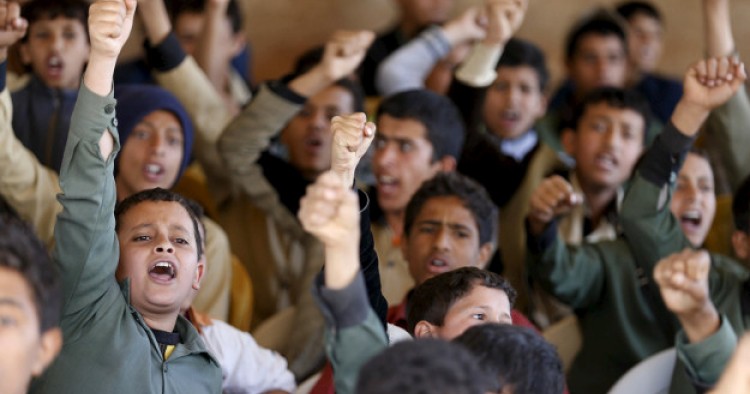Following the Houthi takeover of Sana’a, Iran expanded its academic and cultural exchange programs in Yemen’s education sector. Iran initiated these programs in response to a Saudi-financed program to increase the number of Salafi mosques and madrassas in northern Yemen in the 1990s. Following the Houthi seizure of Yemen’s government in February 2015, Iran leveraged some of these programs —using social welfare services and fundraising networks— to create inter alia recruiting conduits for its political and military training courses, both inside and outside of Yemen. Several of these training programs are jointly operated with Hezbollah.
In furtherance of these efforts, Iran constructed new Iranian cultural centers and Persian literature schools in the Houthi-controlled Yemeni governorates of Sana’a and Dhamar. In 2016, Iran established new academic programs at top universities in Yemen’s northern governorates. The Iranian ambassador to Yemen, Mortedha Abidin, recently inaugurated Persian-language and literature departments in Sana’a and Dhamar Universities, two premier Yemeni schools of higher learning. Last May, Abidin also visited Sana’a University to discuss a proposed academic cooperation agreement with the Imam al-Sadiq University, an Iranian college linked to the Islamic Revolutionary Guards Corps.
The widespread destruction of local primary and secondary schools from Yemen’s civil war prevented almost a quarter of Yemeni students from pursuing their education during the 2015-2016 academic year. Iran’s efforts to expand its influence and academic footprint into the local education arena have been greeted with some acrimony and pushback from Yemeni leaders. In a recent interview, Amin al-Ukaymi, the Yemeni governor of al-Jawf governorate accused Iran of sending teachers to recruit and indoctrinate out-of-school children in his local districts and institutions. He claimed that these Iranian efforts dilute Yemen’s Arab identity and create new platforms for spreading its revolutionary ideology.
The Middle East Institute (MEI) is an independent, non-partisan, non-for-profit, educational organization. It does not engage in advocacy and its scholars’ opinions are their own. MEI welcomes financial donations, but retains sole editorial control over its work and its publications reflect only the authors’ views. For a listing of MEI donors, please click here.













